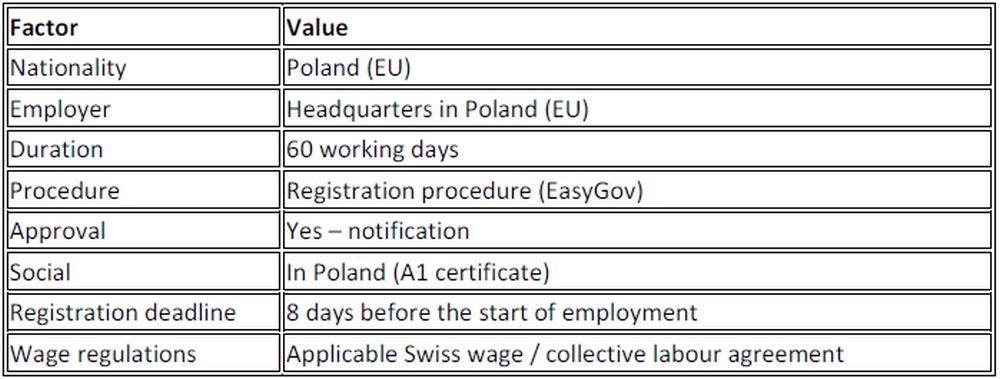- within Immigration topic(s)
- in United Kingdom
- with readers working within the Metals & Mining industries
For the German version, please read here >>
Project assignments, especially those that are cross-border or take place in regulated industries, are often subject to complex legal requirements for approval. These can vary considerably depending on nationality, type of activity, location, duration and the parties involved.
A key challenge is identifying the necessary approval or permit requirements. It must be clarified at the planning stage whether special permits, registrations or notifications, work or residence permits or industry-specific approvals are required for the project assignment. Missing or delayed approvals can not only lead to project delays, but also to severe penalties.
Coordinating the different legal systems is particularly challenging. Internal processes must also be mastered and sometimes present an obstacle: companies must ensure that the relevant information on approvals is forwarded promptly to project managers, human resources, compliance and the legal department.
To overcome these challenges from a licensing perspective, systematic licence management is recommended. This includes an early review of the legal situation, a clear responsibility plan, the use of checklists and cooperation with local experts or authorities. In this way, risks can be minimised, and project assignments can be implemented efficiently.
Looking at this from a Swiss perspective, the question arises as to what type of work permits are available for project assignments (where the employer remains outside Switzerland). The following are generally applicable:
- No work permit required for a period of up to 8 calendar days in the calendar year
- Notification procedure for assignments of up to 90 days
- 120-day permit
- L permit for up to 24 months
- B permit for up to 60 months
Period not subject to authorisation
For a short period of time, fixed at 8 calendar days per calendar year, persons (non-Swiss nationals) may be employed on project assignments in Switzerland without requiring a work permit.
If the employee's employer is based outside the EU/EFTA area, the 8 calendar days are counted per employee. However, if the employer is based within the EU/EFTA area, the 8 calendar days are counted per employer (per legal entity), and this also applies at employee level. This must be checked carefully in practice.
Short assignments of up to 90 days (registration procedure)
The notification procedure can generally only be used for employees whose employer is based in an EU or EFTA member state.
There is also a restriction regarding the nationality of the employee. It only applies to EU and EFTA nationals and non-EU/EFTA nationals who have been resident in an EU or EFTA member state for 12 months prior to the assignment.
Since 17 March 2025, the notification must be made via EasyGov.swiss.
As a rule, the notification must be submitted at least eight days before the assignment, which is not always easy to manage in practice.
Furthermore, each individual day must be reported. In addition, regardless of the size of the company, each foreign legal entity only has 90 calendar days available in a calendar year.
From an administrative point of view, the notification procedure is therefore only a limited and simple option.
Assignments lasting more than 90 working days up to a maximum of 120 days/4 months (120-day permit)
The 120-day permit, which can be obtained for all nationals and is independent of the employer's registered office, is the administratively simpler option, especially for project assignments.
However, the employee is subject to a review, as this type of permit is only available to employees who are specialists or highly qualified employees/managers. From the authorities' point of view, this means that the employee must either have a university degree and at least two to three years of professional experience in the same field of work, or a university degree in a different field or no degree, but at least ten years of professional experience in the field of work.
As the 120-day permit is a work permit, it requires the submission of a work permit application and the presentation of documents relating to the employee and the project contract with the customer.
A 120-day permit is generally valid for 12 months. During this period, the employee can then flexibly organise their assignments themselves according to the client's wishes.
The permit procedure usually takes between 3 and 8 weeks, depending on the nationality and canton of assignment.
Assignments lasting between 4 months and a maximum of 60 months (L or B permit)
If project assignments are planned for a longer period, a work permit procedure is also required. The procedure is similar to that for the 120-day permit, but the period is usually slightly longer.
This type of permit is also available to all nationals and is possible for employers based in any country. With this type of permit, the employee must generally be a specialist or a highly qualified employee/manager.
In addition to the work permit procedure, however, if a 4-month permit is granted, the employee must also register in Switzerland and declare a place of residence.
Salary regulations and expatriate allowances in accordance with the Expatriate Act
Employees who are assigned to a project in Switzerland must meet the following requirements:
- The salary must correspond to the comparable Swiss salary for the entire duration of the assignment in Switzerland.
- For the first 12 months of the assignment, the employee must be paid either the actual costs or a lump sum for accommodation, meals and travel.
Night work, Sunday work and work on public holidays
It is important to be aware that even if a work permit has been obtained for the employee, this does not mean that they are automatically allowed to work at night or on Saturdays, Sundays or public holidays. Depending on the activity and canton, a separate permit may be required.
Initial situation:
- Employer: IT service provider based in Warsaw, Poland
- Employee: Software developer, Polish national
- Project: Implementation of a new ERP solution for a Swiss customer in Zurich
- Duration: 60 working days within a calendar year
- Location: Zurich, Switzerland
1. Applicable procedure
As Poland is an EU member state and the assignment is less than 90 working days per calendar year, the notification procedure can be used.
It should be noted that once the employee has been registered, the company has used up 60 working days. It then only has 30 days left for other employees.
2. Procedure
- Calculation of the relevant Swiss salary: If a collective labour agreement (CLA) exists for the industry, its terms are binding.
- Notification via EasyGovAt least 8 days before the start of work, enter the information on the online portal:
- www.easygov.swiss
- Each working day must be entered individually. If there are different places of work, a separate notification must be made for each place of work.
3. Social security
- As the secondment is based on the Agreement on the Free Movement of Persons with Switzerland, an A1 form must be obtained. This allows the employee to remain in the social security system in Poland and exempts them from Swiss social security contributions.
4. On site in Zurich
- The employee must have a copy of the notification and the A1 form
- The employee must be able to present these documents during checks by cantonal authorities. The other documents can then be submitted at a later date.
In summary
 /p>
/p>
Conclusion / recommendation:
For project assignments in Switzerland, we recommend:
- Specify the duration of the assignment
- Check whether the project contract meets the necessary requirements, as this often leads to problems in practice
- Determine the nationality of the employee
- Calculate the relevant Swiss salary
- Determine the correct work permit or procedure
- Obtain the A1 / posted worker certificate
The content of this article is intended to provide a general guide to the subject matter. Specialist advice should be sought about your specific circumstances.

